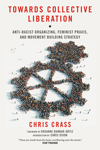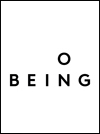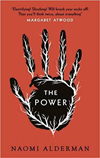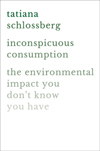Bookstores, movie theaters, and streaming services are full of them—works of fiction that offer visions of bleak, hopeless dystopian futures.
As a society, we’ve become pretty good at imagining the worst outcomes, but shouldn’t we be giving at least as much ink and headspace to the kind of worlds in which we actually desire to live?
That’s precisely what we ask campers to do: Imagine the future that you want, and the roles that we can each have in helping to build that kind of world. For this edition of What We’re Reading, we’re highlighting books, articles, and podcasts that help us see the way life could be, offer strategies to make and embrace change, or that help us see the systems, structures, and behaviors that prevent us from creating the worlds in which we all have a real chance at happily ever after.
 Towards Collective Liberation: Anti-Racist Organizing, Feminist Praxis, and Movement Building Strategy, by Chris Crass
Towards Collective Liberation: Anti-Racist Organizing, Feminist Praxis, and Movement Building Strategy, by Chris Crass
Chris Crass offers learned lessons, and often deeply personal and vulnerable reflections, from organizers and activists working to challenge systems of oppression, in the spirit of lifting up questions that can help to feed vision, analysis, and strategy for creating systems of liberation. He draws on bell hooks’ concept of collective liberation, which recognizes the ways that systems of domination are interconnected and affect us all (differently and disproportionately), with specific attention to how to “help align people with privilege to oppressed peoples’ struggles united by an overall vision of a free society.” Reading personal essays and interviews of the journeys, awakenings, and struggles that others are going through allowed me to deepen my own thinking about my role and path in this work, and fed my understanding of the broader challenges, complexities, messiness, and possibilities involved in building movements for justice. As Crass makes clear, the goal is not perfection, but rather collective learning, organizing, accountability, and liberation. — Eva Armour, Director of Impact
 On Being: “Called and Conflicted” (Shane Claiborne and Omar Saif Ghobash)
On Being: “Called and Conflicted” (Shane Claiborne and Omar Saif Ghobash)
In this episode of the award-winning podcast “On Being,” host Krista Tippett discusses spiritul border-crossing and social creativity with two people who have lived with some discomfort within the religious groups they continue to love—Shane Claiborne, an Evangelical activist and author, and Omar Saif Ghobash, a diplomat of the United Arab Emirates and author of “Letters to a Young Muslim.” Alternately light hearted, searching, and deeply meaningful, this high-level conversation between two great thinkers from different faiths and different nationalities wonderfully models the sorts of encounters we are aiming to foster every day at Seeds of Peace. — Jonah Fisher, GATHER Director
 Emergent Strategy, by Adrienne Maree Brown
Emergent Strategy, by Adrienne Maree Brown
Adrienne Maree Brown is an activist who really shifts the conversation on how change happens—within communities, movements, and as a planet. Her book clearly shows that what we do “at the small scale is how we are at the large scale,” and this sets to tone for all of our systems and structures. This is seen in nature as well as how local change connects to global change. — Kiran Thadhani, Director of Global Programs
 The Power, by Naomi Alderman
The Power, by Naomi Alderman
In this book, teenage girls all over the world begin waking up to find they have immense physical power, and with barely a touch, can destroy people and small armies. The author explores what happens when the power dynamic shifts … and it’s not pretty. But what this author also does is explore the very notion of power itself, and by vividly showing a world in which girls and women can use their physical strength to overpower men, we see just how imbalanced and dangerous the world is in which we currently live, and the brutality women have endured since the dawn of time. — Deb Levy, Director of Communications
 Inconspicuous Consumption: The Environmental Impact You Don’t Know You Have, by Tatiana Schlossberg
Inconspicuous Consumption: The Environmental Impact You Don’t Know You Have, by Tatiana Schlossberg
Books about the environment—at least the ones based on science—can be scary, and while this one has plenty of statistics that could leave one trembling in the corner, to do so would be missing the point. Along with a surprising dose of humor, Schlossberg, a former science reporter for The New York Times, gives an eye-opening account of the daily choices we make that have lasting environmental impact. Yes, it was alarming to learn that particles from the athleisure wear that I treasure today could one day end up on the beach alongside my great, great grandchildren, but it’s also empowering to know that it’s not inevitable. There are better choices for the way that we shop, work, eat, and travel, and we can choose to do things differently. — Lori Holcomb-Holland, Communications & Development Manager
What would you add to this list? Have any recommendations for future editions of What We’re Reading? Let us know in the comments below, or send your picks to lori@seedsofpeace.org.

